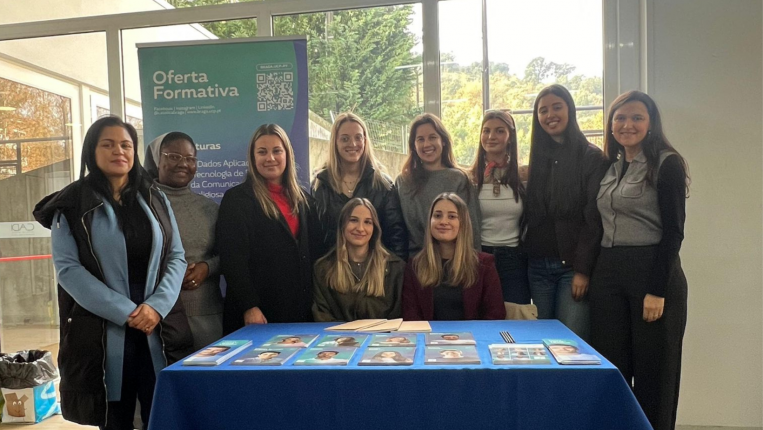The dean of the Portuguese Catholic University, Isabel Capeloa Gil, was the guest on the second episode of the Luso Lab podcast, promoted by the Portuguese Diaspora Council, to showcase the success of Portuguese talent across borders and show what Portugal does best.
In a conversation led by André Patrão, a lecturer at Emory University in the USA, Isabel Capeloa Gil began by sharing a little about her international life and career, from the time she went to live in Macau at the age of seven, to the experiences - and some adventures - related to studying and researching at Stanford, Chicago and Munich.
These multicultural experiences, and the consequent need to adapt, have shaped his way of leading and his vision of the university and teaching. “It was a decoding of the other person's difference that I think is very important as a life experience,” he explains, admitting his ‘passion’ for getting to know different cultures.
“It's extraordinary that we are aware of how little we know and how little we know, because research and academia are a practice of humility and not arrogance,” she believes.
Alluding to the characteristics of the North American teaching model, where there is “confidence in the face of risk”, the dean emphasized the importance of failing. “Without failure you can't achieve excellence. Excellence is about being continually and brutally challenged, challenged and overcome,” she stresses.
The transversality of teaching and knowledge is another of the elements she highlights in the conversation, pointing out that when a young person enters a university “it's not just about guiding them towards a profession, but training them as citizens”.
It is essential “to understand the rich diversity of the universe in which we live and not to train specialized idiots”. And that, he assures us, is the vision he has been trying to reinforce at Católica. That's why, for example, programming is being introduced into all areas of training.
“It's important for the world we're in that a young psychology graduate can program, that a theologian can program and that someone with a degree in literature can do it too,” explains Isabel Capeloa Gil. “On the other hand, we also want managers who know art history, who can read Shakespeare and who understand the aesthetics of Frank Lloyd Wright,” she adds.
When asked about Portugal's ability to attract and bring back Portuguese academics who are abroad, the President of the International Federation of Catholic Universities emphasizes the importance of mobility and the role that universities must play. “It's a very reductive discourse to look at higher education as something to train people inside, to stay inside,” argues Isabel Capeloa Gil.
“We have to provide internal capacity so that this talent can lead, can co-create, can help transform institutions,” which ”have to have the capacity for self-criticism.” “This is particularly important and one of the things we're doing at Católica,” she continues. For the leader, “an institution that doesn't have the capacity to integrate disruption, especially a university, doesn't have the capacity to develop”.
She gives the example of the Católica Biomedical Research Center “which has attracted a wide range of young researchers, professors who were away at Cambridge, in the United States, in Portugal, at other research institutions”.
That's why Católica wants to “have the capacity to welcome them”. “Portugal needs it, but it also needs people to leave Portugal, to be abroad, to come back, to create here, to leave again, to come back again, because the world is global and we need precisely this sense of travel, which is very Portuguese”, he concludes.
In the first episode of Luso Lab, José Manuel Durão Barroso, a lecturer at the Institute of Political Studies at Católica, was interviewed.
Startups, sustainability, health, innovation, geopolitics and education will be some of the topics covered in future interviews on this podcast, allowing for an intergenerational connection between the more experienced and the younger generations.
As part of the Portuguese Diaspora Council, the Youth Diaspora was created in 2024 in response to the challenge launched by the President of the Republic, Marcelo Rebelo de Sousa, to strengthen the link between young talent and the Council.




